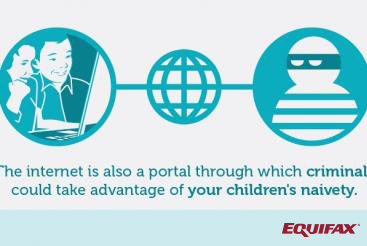How to save for your children's education

Are you worried about how much money your children will cost over time? Research by McCrindle and published by Huggies states that the average Australian family spends over $1 million on raising their children1. Of course, some of that is spent on clothes, food, travel, activities and housing, but a lot of it will go toward education. It doesn't have to be school fees, necessarily, but will include textbooks and stationery, and maybe even a computer or some software.
Focus on having a clean bill of financial health before your kids start costing you an arm and a leg.
If you have a bad credit report and you're struggling to pay off debts, then it’s a good idea to focus on having a clean bill of financial health before your kids start costing you an arm and a leg to go to the best schools and get the best education. By doing that, you'll make it easier to save money in the long run, because your debts won't be constantly sucking your income away.
But how do you go about paying off debts so you can focus on saving for your children's education? First, it is a good idea to check your Equifax credit report.
Working out your debts
When you have debts hanging over you, it can feel like it takes an age to pay them off. If it's a student loan, it might come out of your income directly, or you may have to pay it off manually. Credit card debts can build up as you buy unnecessary items, and then as the bill grows, so too does the interest it accrues.
Cut out any unnecessary purchases first, and only use a credit card when you absolutely must. When you have a statement to pay, make sure you do it as soon as you can. As for other debts (apart from your mortgage), do the same thing - work at paying them all off as quickly as possible, so you don't let the interest grow to unreasonable amounts. A mortgage is a necessity for many Australians, so it is important to factor in repayments especially if you are planning to pay it off early.

Don't worry too much about paying off your mortgage faster - focus on credit card bills and other personal loans.
Once your debts are paid off, you can start putting more and more money aside each month.
How can you start saving?
It's never too early to start seriously thinking about saving money for your children's education. If your credit report is in good health and you’ve paid off any bad debts, you can start putting all of the money you've been using to pay off your debts into a savings account, or even investing them in shares2. The amount you pay off each week or month might not be a lot, but over a few years or even a decade, your $50 a week could turn into $26,000 before any interest accrues. If you can put more away, then by the time you have kids, and they're old enough to go to university, technical college or need tools for an apprenticeship, you could have more than enough to pay for them.
Start saving for your children's future as soon as you can, and the generations to follow you may have more of a chance to be debt-free.
If you've had debts in your past, or you currently have them, you'll know how draining they can be on your finances. Start saving for your children's future as soon as you can, and the generations to follow you will have more of a chance to be debt-free through their education.
Planning on having a family at some point in the future? You'll want a clear credit file, and no bad debts hanging over your head, plus a decent start on your savings account. Make sure you check your Equifax credit report today.
Disclaimer: The information contained in this article is general in nature and does not take into account your personal objectives, financial situation or needs. Therefore, you should consider whether the information is appropriate to your circumstance before acting on it, and where appropriate, seek professional advice from a finance professional such as an adviser.
1Huggies, Cost of raising a child. Accessed January 2017.
2MoneySmart, Saving for your children's education. Accessed January 2017.
Get your Equifax credit report for FREE today
Learn moreYou might also like

How to effectively manage all of your lines of credit
Are you finding it difficult to manage multiple lines of credit effectively? You're not alone. What can you do to keep better control of your finances?

3 things to teach your children about credit awareness
Are you credit-savvy? What about your kids? Check out these three things that everybody should be teaching their children about credit safety.

Is your mortgage interest rate helping you or hindering you?
Have you got a bad credit report, but you can't free up enough of your income to pay off past debts? Your home loan could be to blame.
